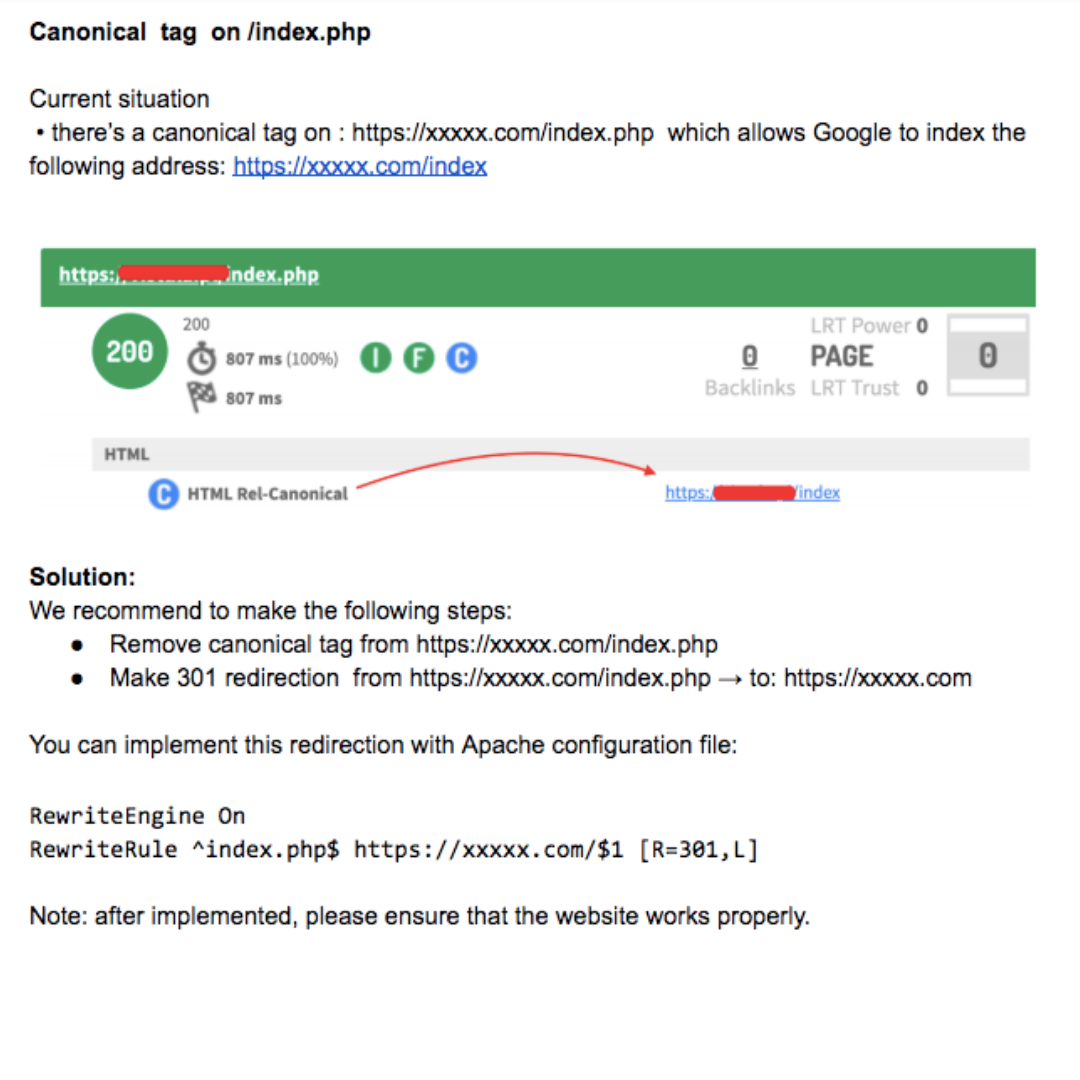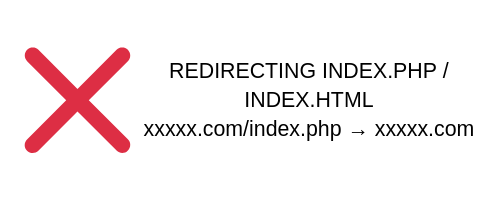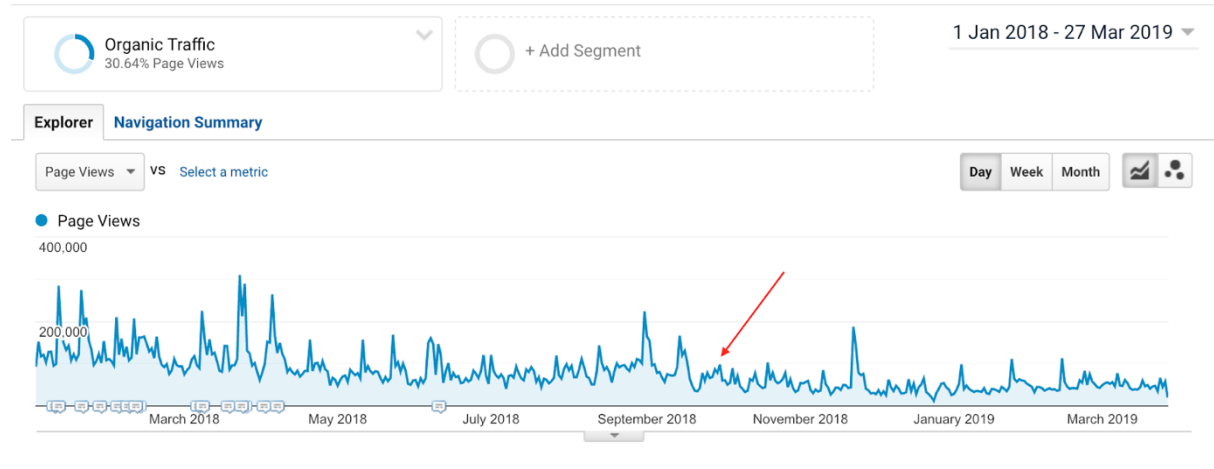Technical SEO Audit – Don’t Promote Your Website Without It
Your online competition never sleeps. Keep this always in mind. If you want to be on the top of the search engine results, pay attention to SEO. It’s best to start with the basics – an SEO audit. Why? Because even if you have built your website properly but haven’t paid much attention to SEO, […]

Your online competition never sleeps. Keep this always in mind. If you want to be on the top of the search engine results, pay attention to SEO. It’s best to start with the basics – an SEO audit. Why? Because even if you have built your website properly but haven’t paid much attention to SEO, you won’t be able to compete with other websites. Before you delve deeper into the subject, find out how to effectively carry out a technical SEO audit.
What Is a Technical SEO Audit
To put it simply, a technical SEO audit is a document written on the basis of an in-depth analysis. The analysis is carried out to diagnose any errors that could make it difficult for search engine bots to render, crawl, or index your website.
These types of errors not only have a negative influence on the visibility of your website. But also make it difficult for users to access it. This, in turn, may cause your website traffic to drop significantly.
The technical SEO audit our company performs covers the following areas:
- crawlability, accessibility, and indexability of the website,
- redirects and canonical analysis,
- site architecture and internal linking,
- duplicate content verification,
- page speed insight,
- HTTPS status codes,
- XML sitemap status,
- robots.txt verification,
- image optimization,
- metadata and H tags analysis.
The scope of a technical SEO audit isn’t always the same for each website. In the case of an e-commerce, we also analyze additional and characteristic webpage sections, like registration, login, shopping cart, and so on.
A technical SEO audit can be carried out manually as well as with the help of professional tools.
Although very time-consuming, a manual analysis allows to inspect elements automatic tools aren’t able to notice. Only an experienced SEO specialist is able to detect certain errors connected to, for instance, keyword cannibalism or robot.txt files.
SEO tools, on the other hand, are able to find a large number of errors that occur in specific parts of your web service. It could be even thousands of subpages in the case of an e-commerce. By automating the audit, we can generate comprehensive error lists, containing specific recommendations.
The end result of a technical SEO audit is a list of detailed guidelines and recommendations. This enables the web developer to correct the errors.
Example of a diagnosed problem, together with a recommendation:

The Difference Between a Professional and Free Website Audit
You must be wondering what is the sense of paying for an audit when there are so many companies or websites that offer audits for free? The major difference between a professional, detailed technical SEO audit and a free website analysis is that in the first case, you receive fully customized and precise guidelines. Unfortunately, a free and automatically generated document does not pay attention to the specific nature of your website and the technology with which it was built. It also usually analyzes only the homepage, ignoring the rest parts of your web service.
Example of a free audit recommendation:

As you can see, the same analyzed area can receive entirely different guidelines, depending on how the analysis was carried out.
A free audit often turns out to be a good way to grab the attention of clients potentially interested in SEO services. Its task is to show the general condition of a website and to point out areas that need improvement. We may compare it to visiting a GP. It examines us, tells what illnesses or other conditions need specialist treatment. But it doesn’t give a precise diagnosis. It doesn’t suggest a comprehensive treatment plan because only a medical specialist can do that. An in-depth technical audit carried by an SEO specialist entails a professional and detailed analysis.
The costs of a comprehensive technical SEO audit include not only the purchase of professional crawling tools but also many hours of work of a technical SEO specialist, whose role is to detect errors and provide precise implementation guidelines for the web developer.
When Should You Carry Out a Technical SEO Audit?
Usually, website owners discover they need a technical SEO audit the moment they notice that their website doesn’t function the way it should, e.g. lack of results, traffic drop, or low traffic quality. And anything done to improve this situation, like changing the SEO strategy, doesn’t work. In this situation, a technical audit is a last resort. Even though, paradoxically, it should be the first step to take whenever we discover that something is wrong with our website traffic.
Therefore, a technical SEO audit should precede any online activities, no matter whether we want to promote the website by positioning, with the help of social media channels or paid campaigns.
In this way, you can avoid exceeding your budget for activities that don’t bring any results, because your website isn’t optimized for SEO.
What Happens When You Ignore All the Technical Aspects and Promote Your Website Without an Earlier Audit?
It would seem that in the face of what I have written above, website owners who want to make profits from online activities would naturally carry out a technical SEO audit. However, my experience has shown that most people ignore this step because they’re unaware of the crucial role technical optimization plays in building website traffic, or because they’re wrongly convinced that their web service is properly optimized. This approach poses many risks. Here are several examples:
- SEO activities don’t bring higher ranking or increase organic traffic
Even the best optimized content or high-quality backlinks won’t matter, if it turns out that search engine bots aren’t able to index your website because of duplicate content.
- High bounce rate
You spent a lot of money on a search campaign but users still leave your website right after entering it? Perhaps your website loads to slow and causes impatient users to leave it. If you don’t want to lose website visitors, this technical problem should be solved in the first place.
- Losing the trust of users
Imagine that you visit an e-commerce website, look through the offered products or enter a product name in the internal search engine, but the website constantly displays ‘Page not found’. I’m sure that after three such attempts to look at a product, you leave the website and simply go to another one. The same thing can happen if somebody visits your page. The ‘404 page not found’ errors have several negative effects. Not only do you lose the trust of users but also of search engine bots, which waste their energy on crawling nonexistent webpages instead of focusing on the essential parts of your website.
Case Study: What Happens When You Ignore a Technical SEO Audit After Implementing a New Website
To illustrate the gravity of the problem, let me show you a case study of our client. After migrating their website to a new platform, the client noticed a systematic decrease in organic traffic, which you can see in the graph below:

The technical SEO audit carried out by Insightland detected several serious errors within the website architecture. They were responsible for reducing the website visibility in the search engine results.
Implementing all the guidelines form an 80-page document can take months of hard work, even with the full support of a technical SEO specialist. If the client had cooperated with a technical SEO specialist during website development and migration, this could have been avoided.
Buying a Professional Audit Is Not Enough
It seems that a technical SEO audit is the remedy for all website illnesses and that buying an audit will miraculously cure the entire web service. That’s not true. In fact, after an in-depth technical website analysis, the next thing to do is to implement the guidelines. In most cases, this turns out to be the most difficult step. Usually, the client has his own IT department that is responsible for all types of implementations, including SEO guidelines. We may say that this is when the work of a technical SEO specialist ends.
However, my experience has shown that, in most cases, giving recommendations for further implementation without the supervision of a technical SEO specialist, lead to disastrous effects. And it’s not about bad intentions of the IT department, lack of knowledge or incompetence, but about the very implementation process and the awareness of its relations with specific SEO guidelines.
These are the most frequent causes of improper guideline implementation that is carried out without the help of an SEO specialist:
- Dividing guidelines into separate tasks that will be implemented by several people.
Example:
In the audit, two recommendations are listed one after the other. The first suggests to delete subpages containing 404 errors from the XML sitemap. The second one advises to make 301 redirects to send users from 404 error pages to a specific subpage. If two persons correct these errors independently from each other, it may turn out that the second guideline will be implemented first – that pages with errors will redirect to the homepage. And then, that the first guideline would be implemented instead of the second. An IT specialist can click on a link that was supposed to be deleted from the XML sitemap and won’t notice the redirect. By accident, he can delete the homepage, to which an 404 error page was redirected from the XML sitemap. With a little imagination, you can guess what happens next.
- Because of the high volume of work, the IT department decides which audit implementation tasks to prioritize. Eventually, the most important tasks can be moved to the end of the list or entirely ignored. Wrong choice of priorities may lead to a situation where some tasks no longer make sense.
Example:
Let’s assume that the website’s major problem is indexing. The audit has shown that there are unfriendly URLs located outside of the website architecture. On top of that, they have noindex directives and the entire domain doesn’t have a sitemap.xml file. Separate recommendations have been made for each of these problems. Therefore, the IT department decided to solve them in the following steps: correct the unfriendly URLs, then move all the links to the menu. And finally, they create a sitemap.xml file, where the links will be placed. Unfortunately, in this whole process, the IT department omitted noindex directives connected to specific subpages. As a result, the fixed, friendly, and linked URLs still aren’t indexed. Thus, the whole process was futile because a single, supposedly unimportant element has been ignored.
- The IT department has its own idea for solving the problem. It’s a real nightmare for any SEO specialist. It is a common problem that, while implementing SEO guidelines, IT specialists create alternative solutions – solutions that are usually cheaper, less time-consuming. And although they may bring the same effects, it’s only on the surface.
Let’s look at a simple example.
The SEO recommendation advises to implement an H1 heading section with a short text on the homepage. The developer, unaware of the meaning of this recommendation, can assume that instead of coding an additional, CSS-stylized section for the heading, he can use an image containing the indicated text (which is already graphically ‘stylized’) and place it in the HTML code with an H1 tag. Supposedly the same visual effect… but not quite. It is, of course, quite an extreme case. Yet still, it’s unfortunately a real-life example.
In my opinion, it is absolutely necessary to cooperate with an SEO specialist when you implement SEO guidelines. Thanks to this, you’ll not only be able to save time but also money, which you won’t have to spend on correcting post-implementation errors.
How to Choose an Appropriate Technical SEO Audit Offer
Right now, almost any SEO agency offers an SEO audit. However, this doesn’t mean that they all offer the appropriate scope and quality of services. After all, a technical SEO audit requires specific competencies and a special kind of meticulousness. Skills not all SEO specialists have.
Do you like our posts?
You might also like our seo services.
Talk to us today and see how we could help you at boosting your company’s growth.
If you really want to have a detailed document that contains precise guidelines, which don’t require spending additional time on searching for problem solutions, you should clearly state what you need. Otherwise, it may turn out that you receive a list of correct but shallow guidelines that will still require further work from your web developer. This, in turn, entails the risk that the IT team misunderstands the problem and, eventually, implements the guidelines incorrectly.
So, before you hire a company to carry out a technical SEO audit, determine the following issues:
- what areas does the SEO audit cover and what aspects are especially important from the perspective of your business,
- in what form will the implementation guidelines be presented,
- does the company offer the support of a technical SEO specialist during the implementation of the guidelines,
- does the company offer a post-implementation verification.
It’s also worth remembering that in order to carry out a technical SEO audit, it is necessary to have access to analytical tools, like Google Analytics or Google Search Console. So don’t be surprised if an SEO company, which you have hired, asks you for logins and passwords to access the tools.
Technical SEO Audit as the Basis For Long-term Website Promotion
You can clearly see what can happen when a technical SEO audit is wrongly carried out. Keep this in mind whenever you build a new website or plan a website migration. Only with a fully optimized and search-engine-friendly website, you can start working. This allows you to catch up with your competition. It helps you to properly index your website, and control its position in the search engine results with regard to keyphrases. An SEO audit also provides you with a groundwork for planning long-term promotion strategies.


